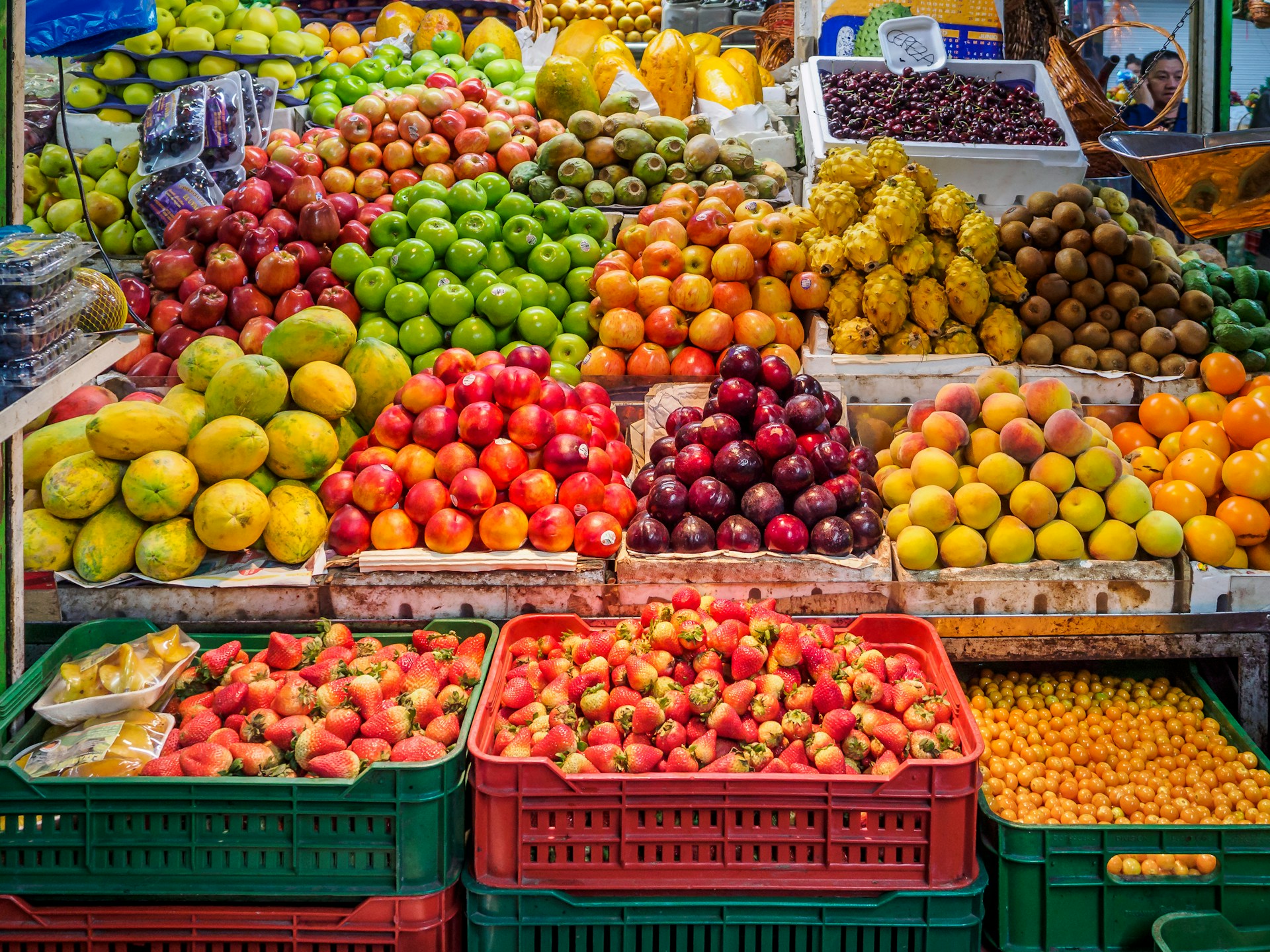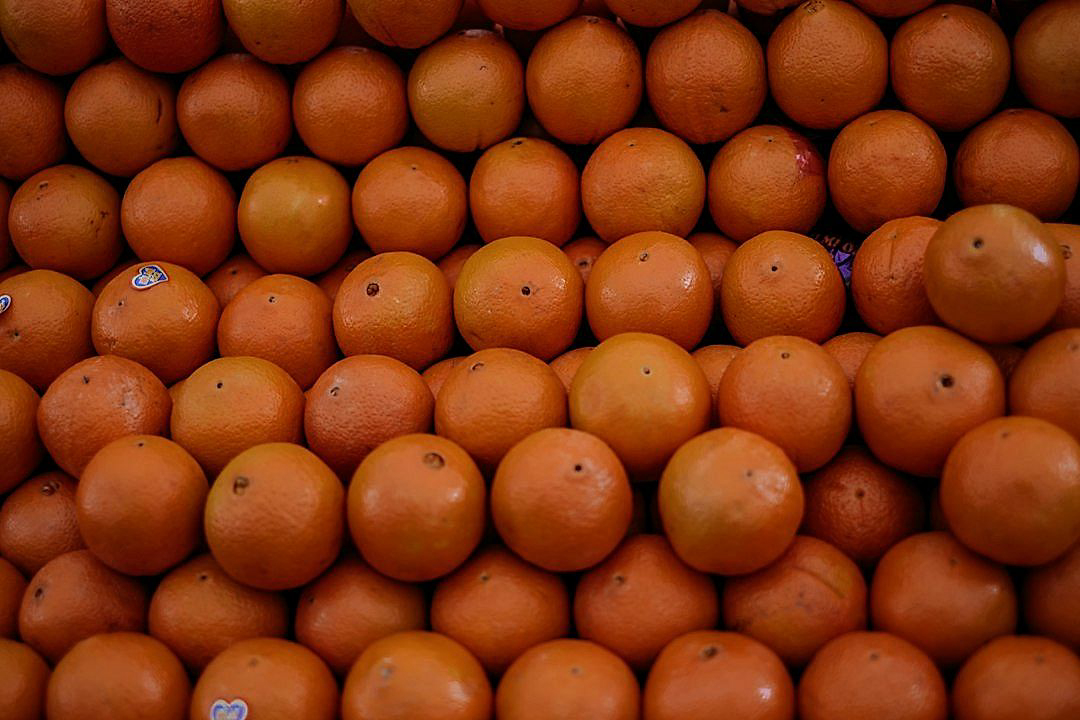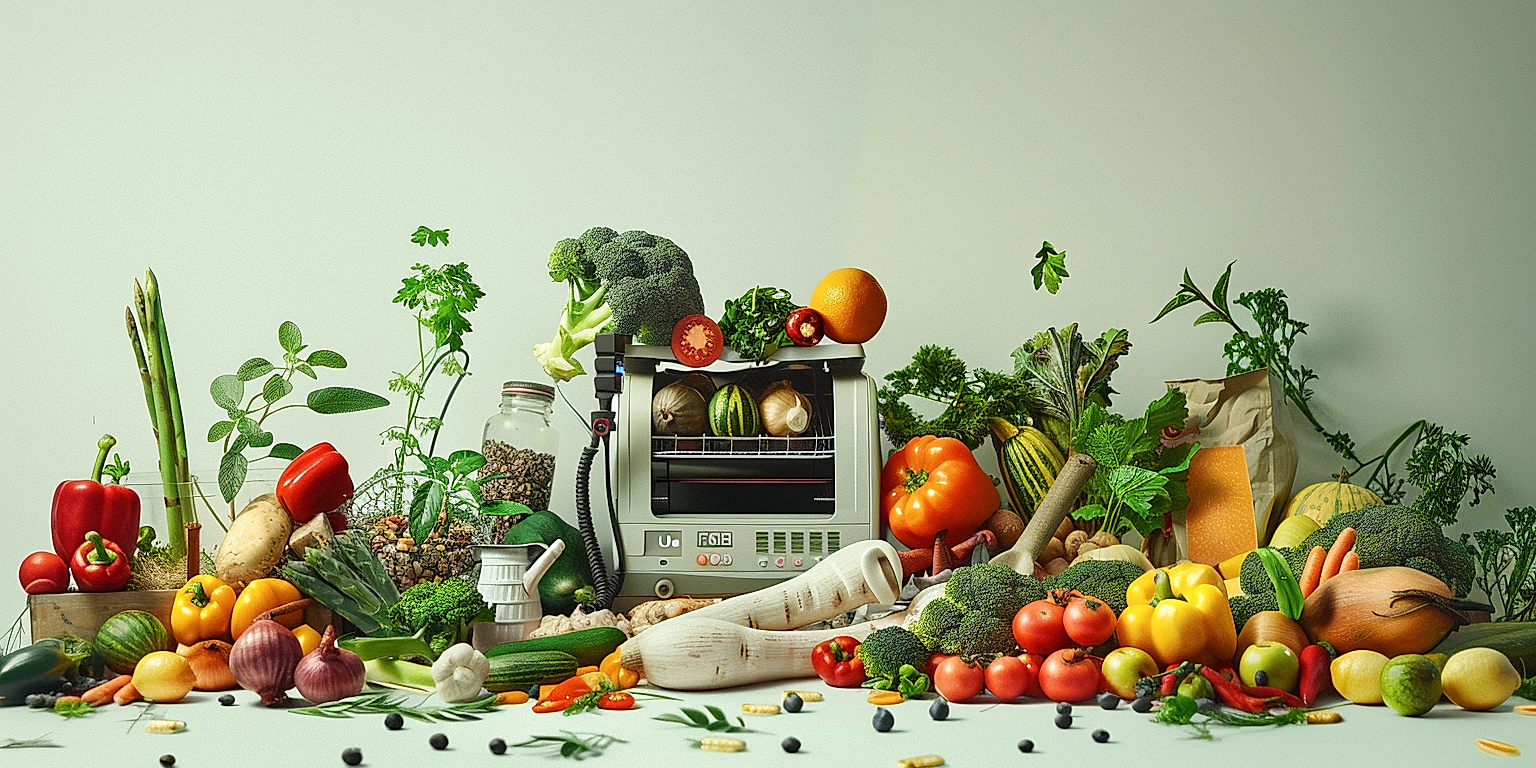In today’s fast-paced retail environment, securing a steady, high-quality supply of fresh produce remains a formidable challenge.
As a retailer, one’s competitive edge often hinges on the ability to source effectively and efficiently.
Yet, traditional sourcing methods have their limitations.
Their inefficiencies inevitably impact the bottom line.
To address these issues, industry professionals are turning to innovative sourcing solutions.
Here we will delve into these cutting-edge strategies, exploring their potential to revolutionize the produce retail sector.
Contents
- Innovative Sourcing Solutions For Produce Retailers
- 1. Blockchain Technology for Tracking Source-to-Store Pathway
- 2. Direct partnerships with local organic farmers.
- 3. Developing Vertical Indoor Farming Facilities
- 4. Implementing AI-based predictive sourcing systems.
- 5. Adopting sustainable waste-to-source circular models.
- 6. Partnering with Agricultural Tech Startups
- The Bottom Line
Innovative Sourcing Solutions For Produce Retailers
1. Blockchain Technology for Tracking Source-to-Store Pathway
In the evolving world of produce retail, innovative sourcing solutions have become paramount, and blockchain technology stands out as a notable tool for tracking source-to-store pathways.
As a transparent, secure, and efficient method, the use of blockchain allows a clear, immutable record of a produce’s journey from farm to store.
By utilizing this technology, retailers can easily track the history, handling, and quality of the sourced produce at each stage of the supply chain.
By ensuring transparency in sourcing, blockchain technology builds customer trust in the sourcing policies of a retail outlet.
The provenance tracing abilities of blockchain also allow retailers to quickly pinpoint any quality issues or disruptions within the supply chain.
This real-time information helps resolve problems instantly, minimizing potential losses and improving overall efficiency of sourcing operations.
Blockchain technology also reduces the chances of product fraud as it guarantees the authenticity of the sourced product by recording every transaction and movement of produce.
The use of blockchain projects a strong commitment to ethical sourcing, assuring consumers about the integrity of the product and the values of the retail brand.
In addition to building trust, blockchain technology also enables retailers to make better sourcing decisions by providing accurate and real-time data about products, suppliers, and prices.
Moreover, at times of food recalls or safety concerns, retailers can promptly track and isolate the problematic produce, protecting consumers and maintaining brand reputation.
This tech-driven, transparent method of sourcing is increasingly being recognized as a valuable asset to retailers in the competitive distribution landscape.
It not only drives improvements in sourcing operations but also delivers substantial gains in customer confidence and brand loyalty.
Although relatively new to the retail industry, blockchain for tracing source-to-store pathways is gaining momentum, revealing its potential to revolutionize the entire sourcing process.
It is indeed an innovative solution that brings a new level of visibility, efficiency, and integrity to the produce supply chain.
Blockchain for supply chain tracking is not just a trend; it is becoming a necessity, steering the future of sourcing in produce retail.
2. Direct partnerships with local organic farmers.
Most produce retailers recognize the importance of sourcing organic produce, but the methods of sourcing may not always be as direct or as transparent as consumers would like.
Direct partnerships with local organic farmers can significantly improve the quality, freshness, and traceability of the produce retailers sell.
These relationships are often built on mutual respect and understanding – the retailers get high-quality products, and the farmers get a consistent and fair market for their produce.
Such partnerships can also help promote local economies and contribute to sustainability efforts, as less transportation is needed to get the produce from the farm to the retailer’s shelves.
Transparency and trust are at the heart of these partnerships, elements that are extremely valued by today’s consumers who are more informed and conscious about where their food comes from.
The implementation of blockchain technology, as covered in the previous section, complements these direct partnerships by further enhancing the visibility of the produce’s journey from the farm to the retail store.
These partnerships also create opportunities for retailers to offer exclusive products that can differentiate them in an increasingly competitive market.
For instance, a retailer could source a specific variety of apple that is only grown in a local farm, giving them an unique product that is not available at other stores.
Moreover, these partnerships allow retailers to participate directly in improving the farming practices, such as promoting regenerative farming practices that improve soil health and sequester carbon.
The direct involvement of retailers in the farming process can give consumers an even greater level of assurance about the quality and sustainability of the produce they are buying.
On a broader level, direct partnerships with local organic farmers can play a big part in the transformation of the food system, making it more sustainable, equitable, and resilient.
It is important to note that developing these partnerships requires effort and commitment from the retailers – they must be willing to invest time and resources in building the relationships and in supporting the local farming community.
Despite the challenges, the benefits of direct partnerships with local organic farmers are clear, and consumer demand for locally grown, organic produce is increasing.
As such, innovative produce retailers, looking for ways to enhance their sourcing practices, should seriously consider establishing direct partnerships with local organic farmers as part of their sourcing strategy.
3. Developing Vertical Indoor Farming Facilities
One of the most innovative solutions in produce retail sourcing is the development of vertical indoor farming facilities.
This approach utilizes controlled environments to efficiently grow fresh produce all year round.
Vertical indoor farming is an advanced agricultural method that allows for multiple layers of crops to be grown in the same physical space, hence the term ‘vertical’.
The structure of these facilities provides a great solution to land scarcity issues common in urban areas.
This type of farming significantly reduces the need for transportation as crops can be grown closer to points of sale.
Energy and water usage in vertical indoor farming are also significantly reduced compared to traditional outdoor farming methods.
Furthermore, due to the controlled environmental conditions, the use of chemical pesticides is typically unnecessary, leading to healthful and organic produce.
Produce retailers can therefore ensure the quality of their goods, knowing the conditions under which they were grown.
This type of farming significantly reduces the need for transportation as crops can be grown closer to points of sale.
Vertical indoor farming facilities also offer the potential for precision farming, where conditions can be fine-tuned to optimize the growth of specific types of produce.
Artificial intelligence (AI) can be leveraged to monitor and control these conditions, maximizing produce quality and yield.
Such facilities can become a significant part of a retailer’s sourcing strategy, ensuring consistent quality and supply of produce.
By incorporating vertical indoor farming into their business models, produce retailers can achieve a level of sustainability that is rare in the current market.
While the initial investment for these facilities can be high, the long-term returns are beneficial for the retailer, the consumer, and the environment.
It shows commitment towards sustainability and creates an image of being a responsible business that cares about the environment.
The development of vertical indoor farming facilities is not just a potential solution; it’s the future of sustainable retail sourcing in the produce industry.
4. Implementing AI-based predictive sourcing systems.
Artificial Intelligence (AI) is steadily revolutionizing the produce retail industry, particularly in the realm of sourcing strategies.
The implementation of AI-based predictive sourcing systems affords retailers unprecedented access to real-time data and trends.
This technology infuses efficiency and accuracy into procurement processes, enabling retailers to optimize their sourcing methodologies based on informed insight.
Predictive algorithms are able to intelligently analyze data, understand patterns and predict future demands, consequently facilitating informed decision-making.
By adopting AI-based predictive sourcing systems, produce retailers can significantly reduce instances of supply-demand mismatches, thereby minimizing food waste and enhancing profitability.
These systems are equipped to understand and interpret complex market dynamics, helping to anticipate seasonal shifts and adjust sourcing channels accordingly.
At the core of such sourcing systems lie advanced machine learning mechanisms that learn, adapt and improve over time, becoming more effective with each sourcing cycle.
For instance, an AI system can accurately determine the most cost-effective source for a particular type of produce during a specific time of the year.
It can also predict when a certain type of produce is likely to be in high demand, helping retailers stock up in advance and minimize supply chain disruptions.
In a market driven by the ‘farm-to-fork’ philosophy, such systems can also identify and prioritize high-quality, locally sourced organic produce.
Moreover, these AI-based sourcing systems facilitate real-time tracking, ensuring absolute transparency in the produce supply chain.
In times of supply difficulties, these systems can instantaneously locate alternative sourcing pathways and ensure uninterrupted operations.
Automated data-driven analyses rendered by these systems not only streamline sourcing operations, but also facilitate robust forecasting and inventory management.
By implementing an AI-based predictive sourcing system, retailers are, in essence, leveraging the power of data to drive their sourcing decisions, establishing themselves as innovative frontrunners in the ever-evolving produce retail market.
Through AI’s predictive capabilities, retailers are poised to navigate the complex landscape of produce sourcing with more intelligence and increased resilience.
5. Adopting sustainable waste-to-source circular models.
Adopting a sustainable waste-to-source circular model redefines the traditional system of sourcing in the produce retail industry.
This model involves turning waste material into a source for new products, thus creating an eco-friendly cycle of production and consumption.
By implementing this model, produce retailers can achieve a double effect; reducing the cost of sourcing raw materials and minimizing waste generation.
Adopting these models can be transformative, eliminating the concept of ‘waste’ and turning it into an opportunity for continued production and additional profits.
The waste-to-source circular model is based on the natural eco-system where waste materials are often the raw materials for new life forms.
Employing a similar approach in the produce retail business could reduce environmental footprints and lead to more sustainable practices.
Many businesses, both within and outside the agriculture industry, have already begun implementing these models, providing excellent case studies and evidence for their effectiveness.
This sustainability concept not only promotes environmental responsibility but also provides potential financial benefits.
Innovative produce retailers can extract value from waste by diverting it from landfill and incorporating it back into their production cycle.
For example, food scrap could be composted and used to enrich the soil in vegetable cultivation, while plastic packaging waste could be repurposed into plant pots or transport containers.
This ultimately contributes to a reduction in cost of sourcing new materials.
Moreover, such a practice aligns perfectly with the preferred buying trends of the current consumers, who are showing an increasing preference for sustainable and environmentally responsible brands.
Nevertheless, implementing these models requires significant planning, commitment, and potentially substantial initial investment.
However, the long-term benefits far outweigh the temporary challenges.
Sustainable waste-to-source models are, thus, an essential part of future-proofing the sourcing strategies of innovative produce retailers.
Through these models, retailers can demonstrate their commitment to sustainability while also improving their bottom line.
6. Partnering with Agricultural Tech Startups
Initiating partnerships with agricultural tech startups is a high-potential strategy for produce retailers looking to source their products innovatively.
Agricultural tech startups are often at the forefront of innovation, developing new technologies and approaches to farming that can significantly enhance the efficiency and sustainability of produce sourcing.
These startups can offer retailer solutions like precision agriculture tools, AI-driven crop management systems, and advanced farming equipments, which will reduce waste and increase crop yield.
Advance soil health monitoring technologies that these startups develop can help in making informed decisions about crop selection leading to increased sourcing efficiency.
Moreover, through partnerships, produce retailers can gain access to real-time, data-driven insights into crop growth and harvest timings, enabling them to plan their sourcing and inventory management more accurately.
Retailers can gain a competitive edge in the market through real-time, data-driven insights into crop growth and harvest timings produced by the innovative technologies developed by agricultural tech startups.
Moreover, aligning with tech startups enables retailers to adopt sustainable farming practices such as hydroponics and vertical farming, fostering eco-friendly sourcing.
Considering the potential impacts of climate change, technologies that aid in resilience like drought-resistant crops and efficient irrigation systems can be invaluable for retailers and are often the focus of many agtech startups.
Encouragingly, many of these startups also prioritize social responsibility, working to improve farmer livelihoods and advocate for responsible agricultural practices.
This means that partnerships can also help retailers improve their own corporate social responsibility profiles.
Similarly, many agricultural tech startups also offer traceability solutions, helping retailers to ensure food safety and source transparency, which in turn foster consumer trust.
Investing in these startups not only accelerates the development of new technologies, but also strengthens the relationships between retailers and the agricultural sector, ensuring a steady and reliable source of fresh produce.
It’s noteworthy that such partnerships can also facilitate a greater public awareness and acceptance of ag-tech innovations, paving the way for the future of farming.
Thus, by partnering with agricultural tech startups, produce retailers stand to gain significant benefits ranging from increased sourcing efficiency and sustainability to improved social responsibility profiles and traceability assurances.
In a world where sourcing innovation is becoming increasingly essential for business success, such partnerships represent a crucial strategic resource for produce retailers.
The Bottom Line
Our food industry is undergoing an exciting transformation, spurred by innovative technologies and a deepening commitment to sustainability.
From blockchain tracking for transparency to direct partnerships with organic farmers, the industry is making significant strides in bolstering source-to-store pathways.
The emergence of vertical indoor farming presents a profound opportunity to increase production while reducing environmental impact.
Furthermore, the adoption of AI in predictive sourcing is ushering in an era of efficiency and minimising waste.
Capitalising on the sustainable benefits of waste-to-source circular models, coupled with beneficial collaborations with ag-tech startups, will surely pave the way for a more sustainable, efficient, and transparent food industry.
These developments invite a newfound confidence in our meals’ origins and the processes that bring them from farm to table.
Ultimately, these interventions herald a future where our food supply is not just reliable and plentiful, but also responsible and transparent.




